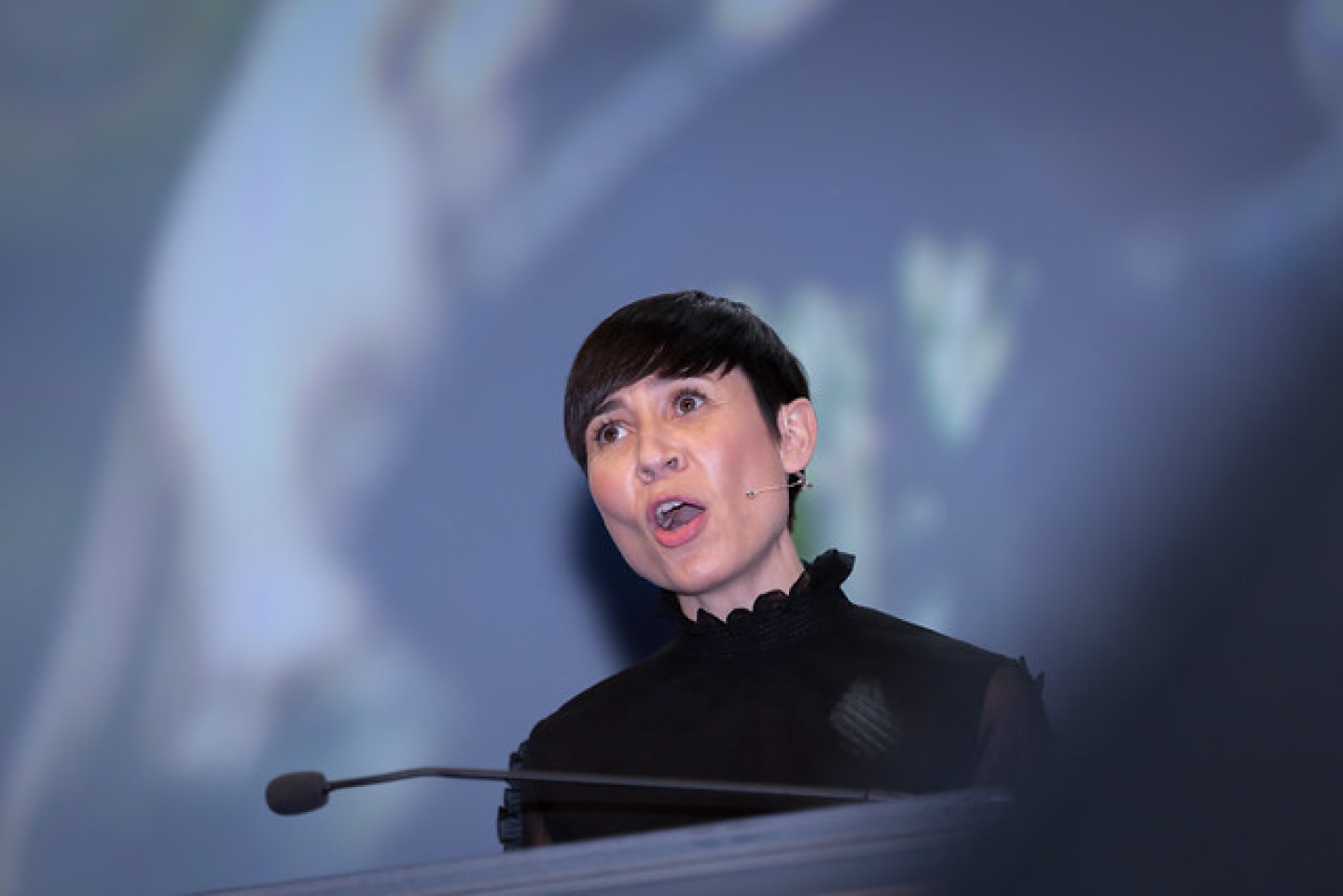USA kritiserer praktisen i WTO ved at medlemslandene selv definerer om de utviklingsland eller utviklede land.
Dette er spesielt retta mot Kina og India.
WTO avtalene inneholder bestemmelser som gir Utviklingsland spesielle rettigheter. Dette er for at handelsliberalisering må gjøres gradvis og etter behovene til Utviklingsland for at handel skal føre til utvikling.
Norge forsvarer denne praksisen med «spesiell og differensiert behandling» i et notat til WTO medlemmene, og argumenter for at det er et viktig verktøy for utvikling, og tilbakeviser ideen om å sette kriterier for å bestemme om et land er utviklingsland slik USA ønsker.
Norge mener slike kriterier er urealistisk og ikke nødvendige.
Norge mener GATS avtalen og avtalen om Tekniske handelshindringer kan være modeller for fremtidig forhandling. Begge avtalene har et tilnærming om en «minimum grunnlinje» som betyr at medlemmene kan ta flere forpliktelser når deres utvikling og kapasitet tillater det.
Viktige elementer i «spesiell og differensiert behandling», som poengtert i notatet, er innfasingsperioder og ulike terskler for forpliktelser, i tillegg til teknisk assistanse og kapasitetsbygging for utviklingsland.
Les hele saken her (Inside U.S. Trade)
Norway, in counter to U.S., says development at ‘heart’ of WTO
https://insidetrade.com/daily-news/norway-counter-us-says-development-%E2%80%98heart%E2%80%99-wto
4/29/2019
Norway is defending “special and differential” treatment at the World Trade Organization, arguing in a new paper that it is an “important tool” for development and rebuking as unrealistic the idea of set criteria for accessing benefits, as the U.S. has proposed.
WTO members should take a “pragmatic” approach to special and differential treatment, Norway said in its communication, which was made public on Friday. Norway is considered a developed country at the WTO.
The U.S. has frequently criticized the WTO practice of allowing countries to self-identify as “developing” and thus gain access to special and differential treatment in implementing WTO agreements and obligations. In February, the U.S. proposed four criteria for being considered developed: Organization for Economic Cooperation and Development membership; G20 status; “high income” classification by the World Bank; or accounting for at least 0.5 per cent of global merchandise trade.
Countries like China, Singapore, Argentina and India are frequent targets of the U.S., which argues that large economies are using their developing status as a way to avoid further WTO commitments. China has refused to give up its developing status but has said it is willing to take on additional obligations commensurate with its development. China and India followed the U.S. proposal with their own WTO communication defending special and differential treatment and accusing the U.S. of being “profoundly disingenuous” in its past criticisms.
Norway didn’t name the U.S. in its paper but cited idea of proposed criteria, like those in the U.S. proposal, as “neither realistic nor necessarily useful.”
“The question should rather be how S&D could be designed to address the development challenges Members are facing,” Norway wrote. “It is the negotiated result that matters, not the categorization of Members.”
In establishing the WTO, members recognized the need for efforts that would allow poorer and less-developed countries to enjoy the benefits of trade, Norway argued, adding that they reaffirmed that commitment in the 2015 Ministerial in Nairobi. Since then, the paper notes “polarized views” on the subject have contributed to the “broader challenge to find an appropriate negotiated balance of rights and obligations amongst WTO Members.”
Inside U.S. Trade has reported that the U.S. proposal was likely to complicate ongoing negotiations at the WTO on fisheries and electronic commerce.
“The contribution of trade to sustainable development is at the heart of the multilateral trading system,” Norway said. “S&D is an important tool for enabling development and greater participation in the multilateral trading system. It forms part of the context of negotiations across the range of policy areas where the WTO is engaged.”
Norway points to a variety of WTO agreements that have included special and differential treatment provisions that it said could be used in the future.
Special and differential treatment can mean a range of provisions, depending on the agreement, the paper said. In some, they allow for flexibility on commitments or implementation, while others are “best endeavor” provisions. Developing members also have different requirements for domestic support and access to technical support and capacity building.
The General Agreement on Trade in Services, for example, includes “appropriate flexibilities through progressive market-opening measures agreed in successive negotiations,” Norway noted.
“Sometimes it will be possible to attain enabling objectives and provide the necessary flexibility to Members at different levels of development with no explicit reference to S&D,” the paper continues. “In effect, the GATS does not mention S&D at all, relying instead for adequate flexibility on a gradual process of market opening and regulatory commitments that is determined by individual Members in the course of negotiations.”
Norway also pointed to the Agreement on Technical Barriers to Trade as a model given its “procedures for examining Specific Trade Concerns.” The concerns are “discussed and acted upon” by interested members, producing resolutions that “appear to have achieved a measure of success in amicably managing trade frictions among Members,” the paper says.
“They have been resorted to by a wide spectrum of Members,” Norway added. “This approach could be explored and perhaps extended to other domains.”
TBT and GATS both also have “minimum baseline approaches,” as the paper notes, meaning members can take on more obligations as their development and capacity allow.
Elements like phase-in periods and thresholds of commitments “are useful flexibility mechanisms,” Norway continued, while “technical assistance and capacity-building” for developing countries “are vital components” of special and differential treatment.
“The tools already exist for a creative and effective approach to flexibilities that respond to the development needs of Members. Such an approach would enable fuller participation and at the same time contribute to an appropriate balance of rights and obligations among WTO Members,” Norway concluded. “This should inspire us to explore how the development dimension, including S&D, can best be pursued in a pragmatic and creative manner in current and future negotiations.” -- Hannah Monicken (hmonicken@iwpnews.com)

